In brief
Our annual AI report confirms continued growth in adoption and use within the commercial and contract management (CCM) process, though at a relatively measured pace. For many, a sense of aspiration and excitement remains, but tempered by the recognition that the benefits are not instant and can be demanding to achieve.
Beyond addressing concerns over security and accuracy, one of the primary barriers to faster adoption is difficulty in obtaining a budget. That is interesting since there is extensive evidence that CFOs are ready to invest in generative AI – when presented with the right use case. Multiple recent reports and articles indicate that the money is available, so the issue is not so much a lack of funding, but more an inability to make the business case and demonstrate a compelling return on investment.
We hope the findings of this survey help contracting professionals make the case. As WorldCC has famously found in previous surveys, contract value leakage represents a material drain on company margins. In this report, respondents say they expect AI to address this erosion, with ‘contract value realization’ emerging as the top aspiration for AI implementations. Even addressing a fraction of the typical 8.6% missed contract value should whet any CFO’s appetite.
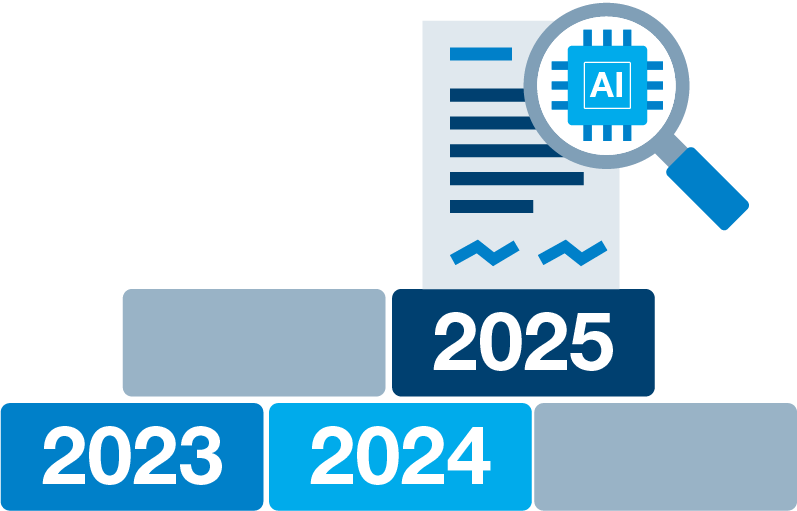
Barriers to implementation
Security and data privacy
Data output quality
Resistance to change and lack of budget
Other significant factors include a general:
Workforce and skills development
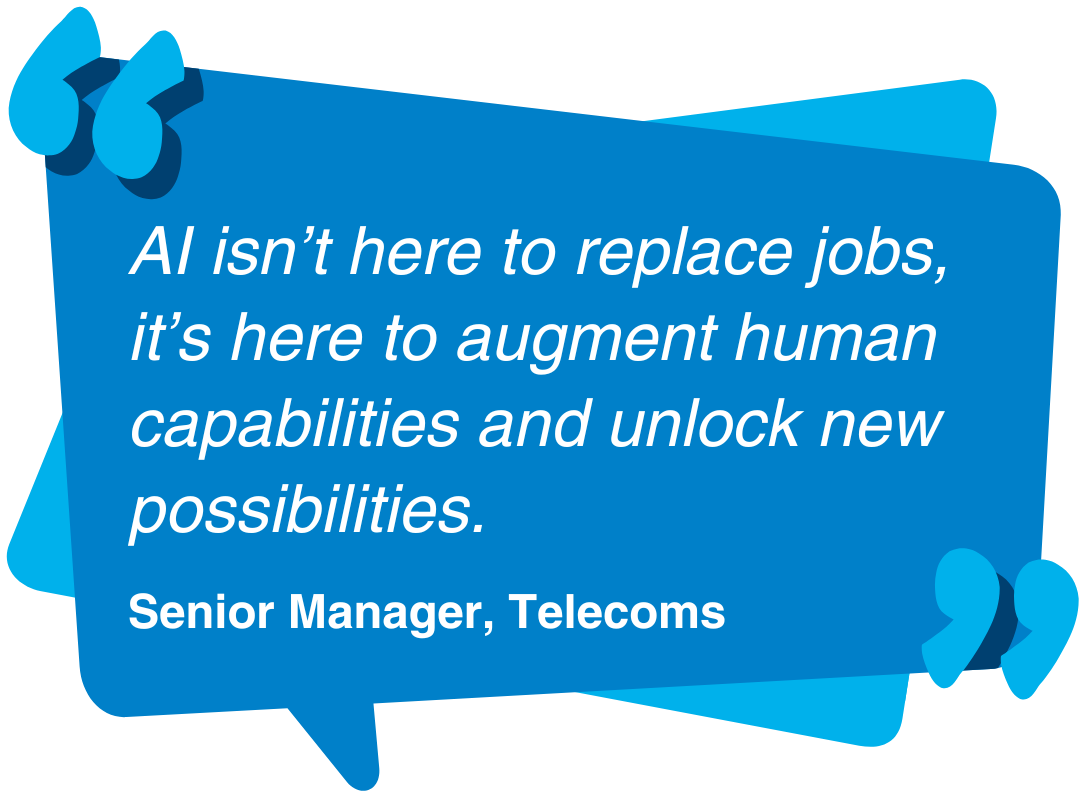
Expectations and aspirations
Practioners expectations of the benefits of AI and comparative ranking by ChatGPT
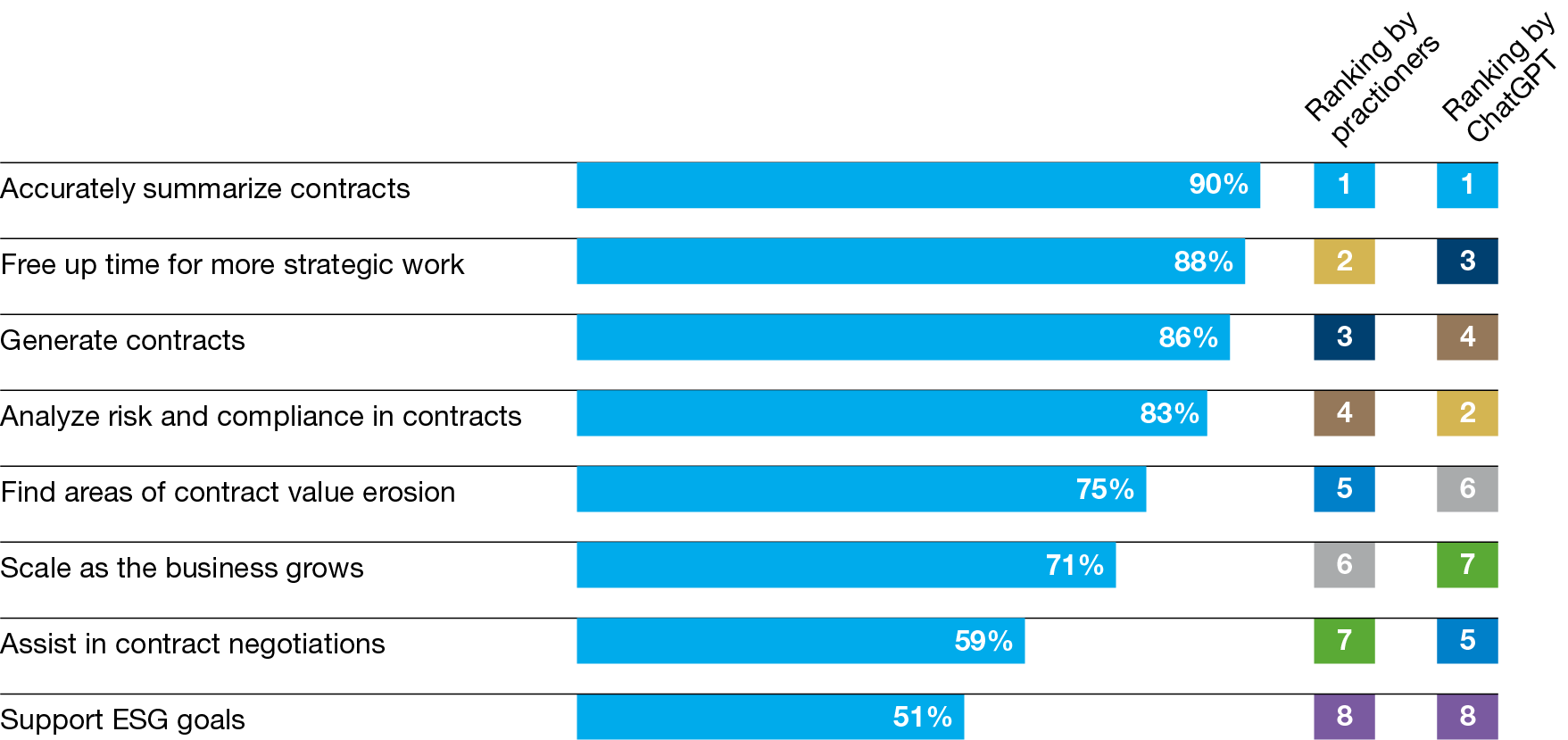
Conclusion
There is a cautiously optimistic view of AI in contracting, recognizing its transformative potential while suggesting careful adoption.
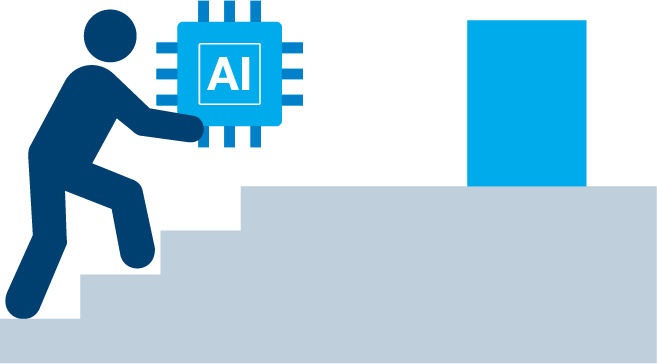
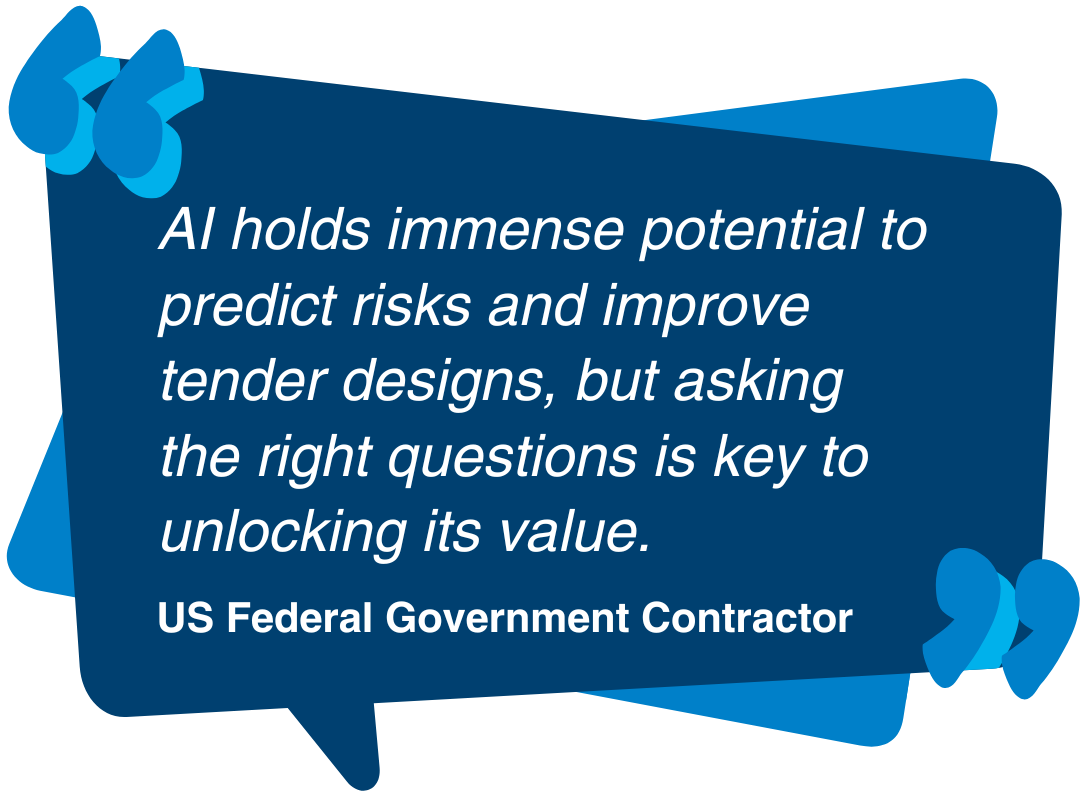
Written by
Tim Cummins

An international, cross-industry career that has moved from corporate management to extensive research, advisory and capability development services to public, private and third sector organisations. Tim has lived and worked in the UK, France (3 years), and the United States (20 years), building an impressive research and entrepreneurial record with a demonstrated commitment to delivering social benefit. As Founder and President of World Commerce & Contracting (formerly International Association for Contract & Commercial Management), Tim has built a 72,000-member worldwide non-profit association which increasingly influences commercial policies and contracting practices in major corporations and governments. In September 2019, he was presented with the Financial Times ‘Market Shaper of the Year Award. Tim was, until recently, Professor and Chair of International Commercial & Contract Management at the University of Leeds, School of Law, where he taught and led the development of inter-disciplinary commercial programs. Prior to founding World Commerce & Contracting, Tim was on the Chairman’s staff at IBM Corporation and led the development of worldwide commercial processes and skills. His early career included management roles in the banking, automotive and aerospace industries, where he led negotiations up to $1.5 billion in value. He has served in advisory roles for government departments in various countries, including the US, UK, Australia, Canada, and Japan.
Resources
From webinars to articles and events we have a whole host of resources to help you on your journey to AI excellence.
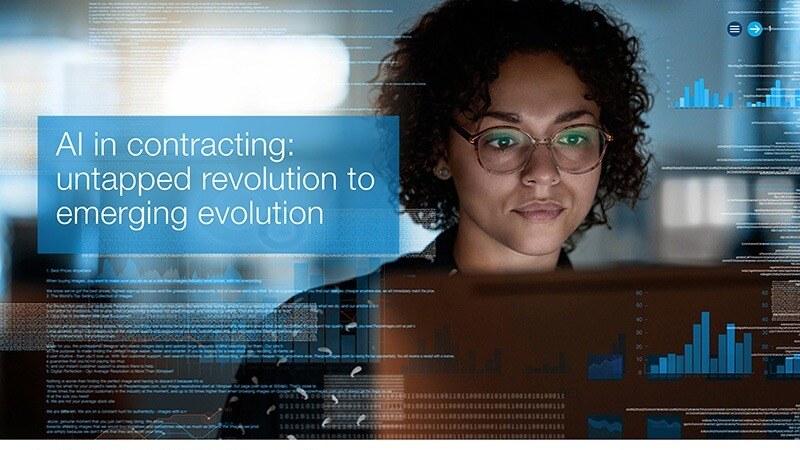
AI in contracting 2024
Curious to see how the AI revolution in contracting has progressed? Download the 2024 report, "AI in Contracting: From Untapped Revolution to Emerging Evolution," for key insights and analysis that provide context for the latest 2025 findings.

Articles
Our Content Hub boasts an extensive collection of AI articles, delving into the transformative impact on contracting and commerce. As leaders in the field, we offer valuable insights and thought-provoking content, illuminating AI's revolutionary potential in the contracting landscape.
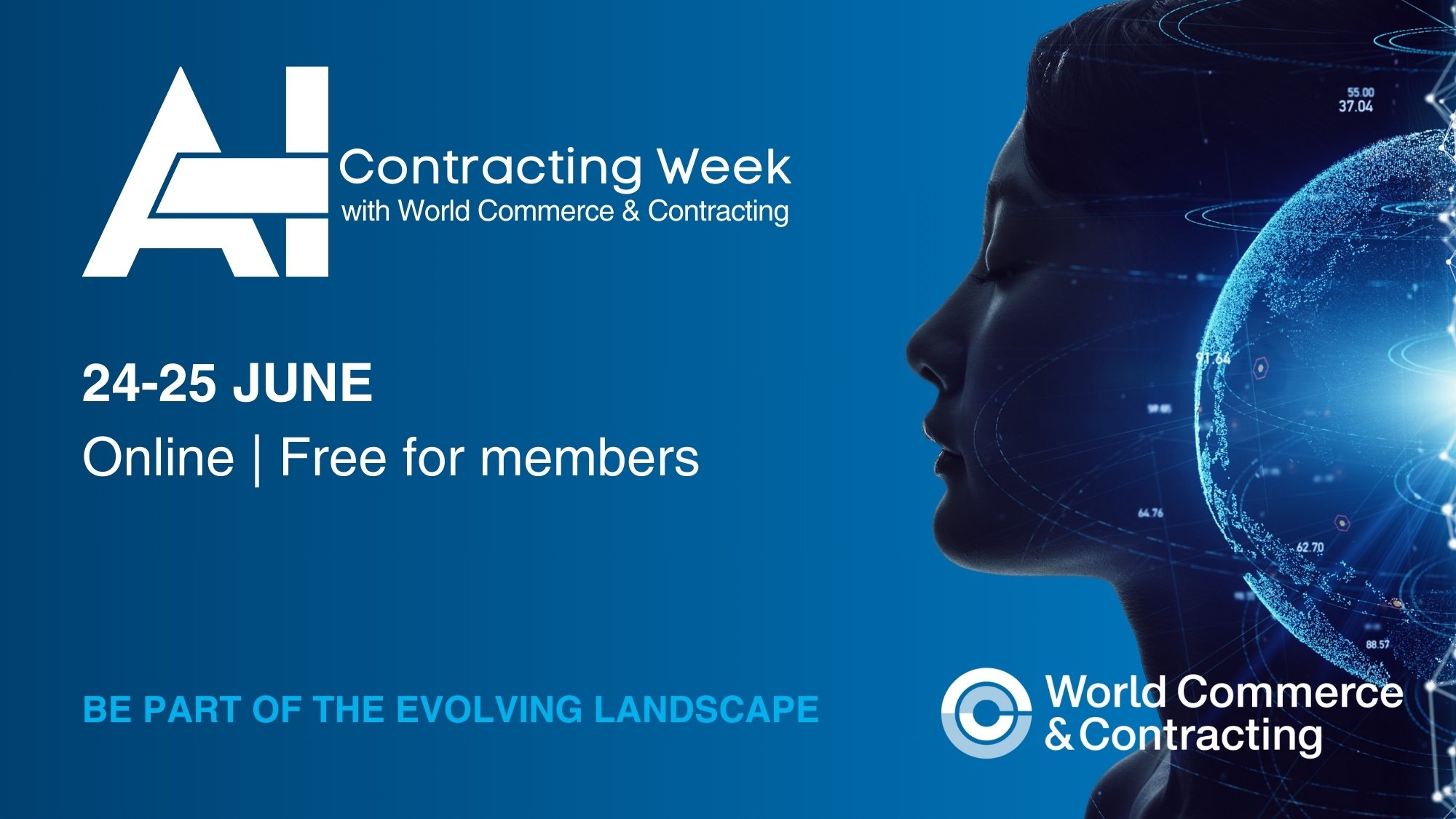
AI Contracting Week
Join us for AI Contracting Week 2025, the premier event bringing together industry leaders, innovators, and thought leaders to explore the future of contracting powered by AI. Missed last year's inaugural event? Catch up on all the insightful sessions and presentations from AI Contracting Week 2024.
Become a member
Join now to access a range of benefits as part of the world's largest commerce and contracting community.
- Become part of a global community and connect with other members at events and on online forums.
- Participate in live webinars and sponsored webcasts with thought leaders and experts.
- Attend local networking groups and regional or international conferences.
- Access the latest research, reports, analytics, best practice templates and thought-leadership articles.
- Become certified with our globally recognized training programs.
- Gain one-on-one mentorship from our experts.
- Receive regular news and industry updates.
- Search and post jobs on our members job board.
- Raise your professional reputation by contributing to our Content Hub, joining working groups, speaking at conferences, and contributing to research.





